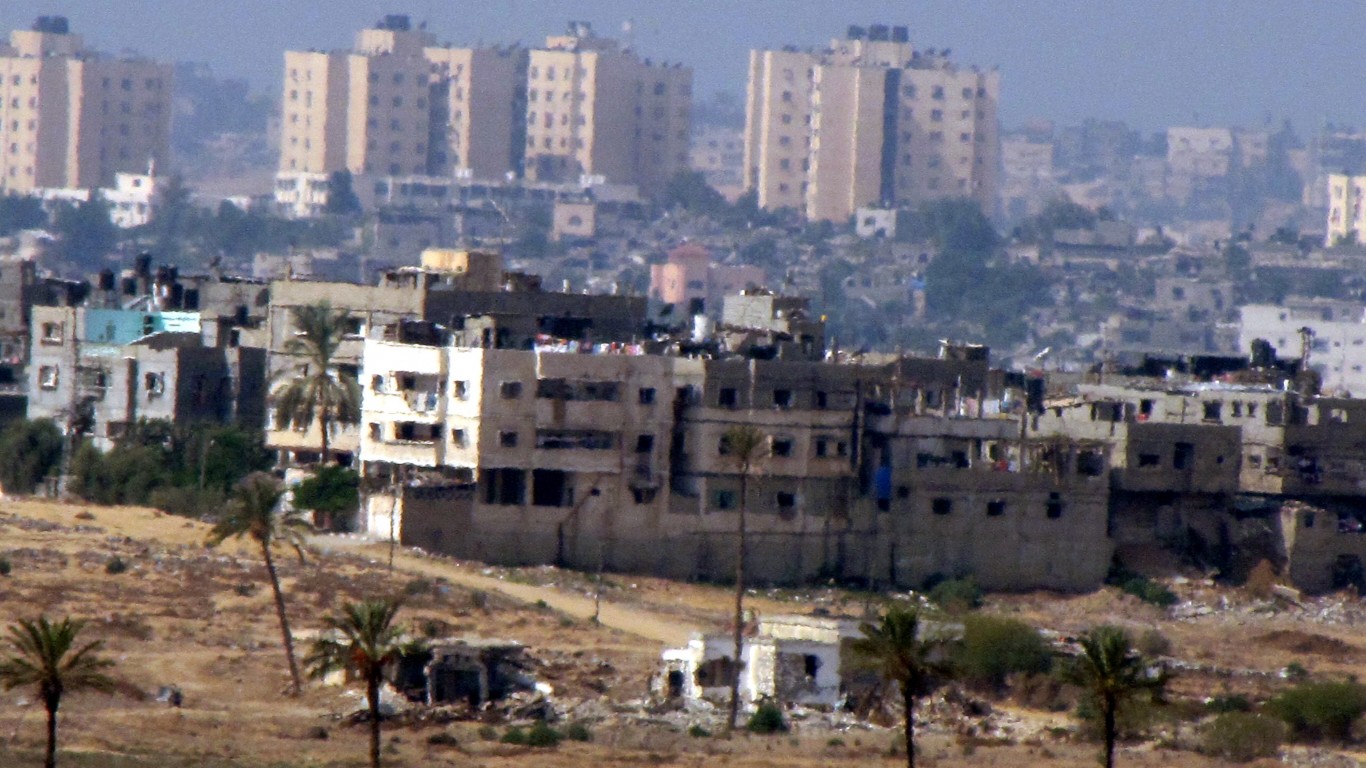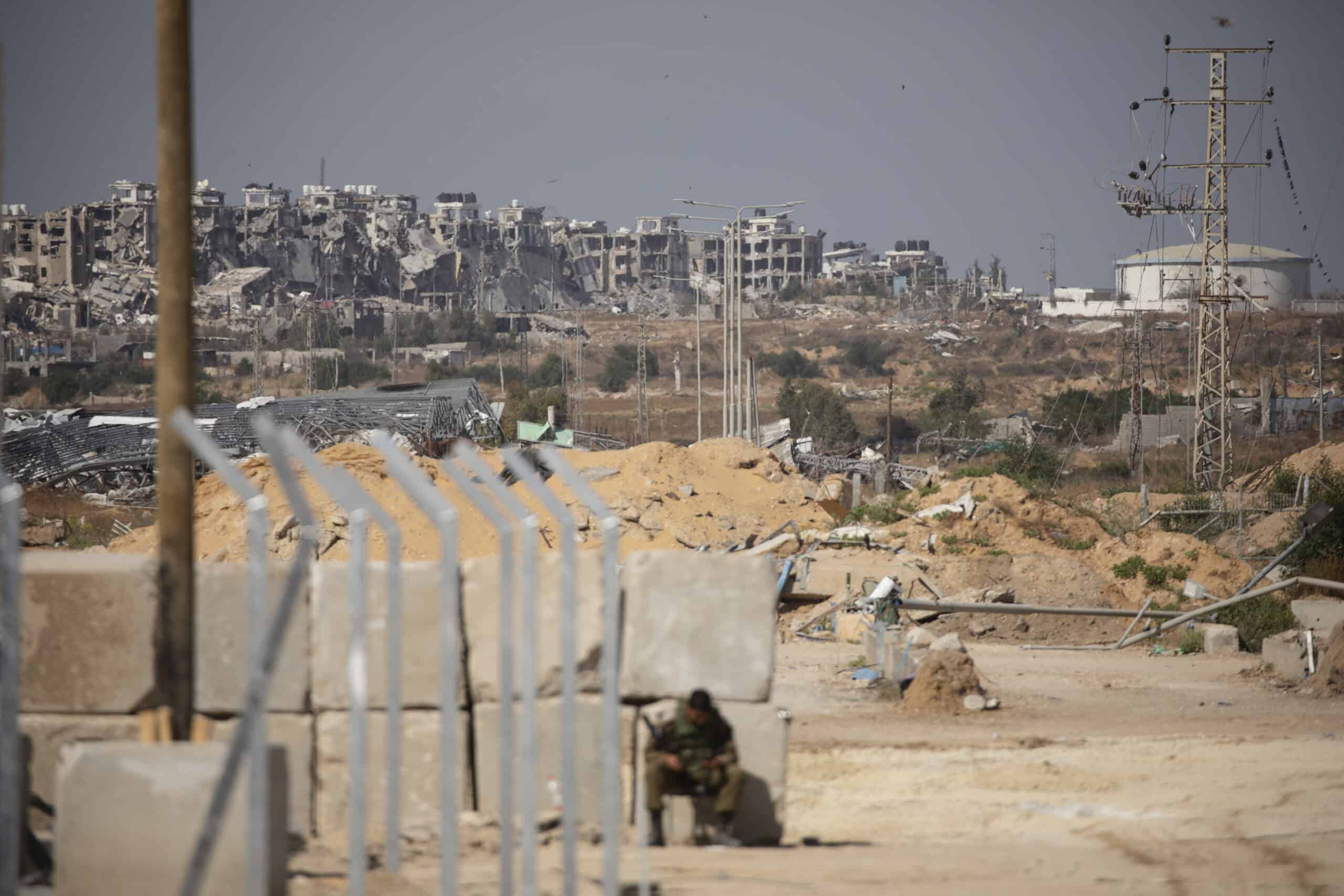
In April 2024, the U.S. government only issued one travel warning, though it did cover several areas within a region. Due to heightened tensions in Israel, the West Bank, and Gaza, the U.S. Department of State issued travel warnings urging caution and, in some cases, avoiding travel altogether.
We’ll dive into these advisories in more depth below. While all advisories generally mean that travel isn’t advisable, these warnings can vary widely in what they actually mean. Therefore, it’s important to understand any potential advisories if you plan on traveling.
Why Are We Covering This?

Travel warnings affect a lot more than just people traveling. It can affect trade and point towards economic changes. For instance, Israel’s war with Hamas may increase the price of oil. Staying on top of these world events is vital for any investor or even the average family.
1. Gaza – Do Not Travel

Due to the ongoing conflict in the region, the U.S. government is recommending not to travel into Gaza unless absolutely necessary. The U.S. is unable to provide services to citizens in Gaza, which means anyone who travels there would be completely on their own! U.S. government employees are also banned from traveling in the region (which is why help cannot be provided).
The travel ban is in place due to the Israel Defense Forces’ large-scale military operation in Gaza against Hamas, which the U.S. has designated as a foreign terrorist organization. The border around Gaza and inside Gaza itself is very volatile and dangerous.
The pedestrian crossing between Gaza and Israel was damaged on October 7 and has yet to be re-opened. The pedestrian crossing between Gaza and Egypt is currently open, but it may close without advanced notice due to the ongoing conflict.
Telecommunication and the internet are also sporadic. If you do decide to remain within Gaza, there are several things the government recommends keeping in mind:
- Be prepared to stay for an extended amount of time within Gaza, as pedestrian crossings are likely to close at any time. They may remain closed for long periods due to unrest and armed conflict. This is not the time for a “quick trip.”
- Do not rely on U.S. government assistance to leave or enter Gaza, as it will not be available.
- You should have emergency supplies such as food and water for everyone in your household. For children, plan to bring plenty of formula or baby food.
- Travelers should carry with them at least a week’s supply of all medications. You should preferably have several weeks’ worth, though, as medication within Gaza may be hard to come by (and you may be stuck in the area for a while).
- If you require power for medical purposes, be sure you have a source of alternative power. The power supply within Gaza may be sporadic.
- If you do not have one, drafting a will is appropriate.
- Have a plan with loved ones regarding the care of children and your property.
This area is exceptionally dangerous at the moment, so it’s best to avoid traveling here if absolutely possible!
2. Israel- Reconsider Travel

Travel to Israel is also not recommended, as the security system remains unpredictable. U.S. citizens in the area should remain vigilant and leave as soon as possible. Mortar and rocket fire often occur without warning, leading to potentially life-threatening situations.
Furthermore, Israel is currently restricting the travel of pedestrians in some areas. Movement near the border is not allowed, for instance.
Additional travel restrictions may be implemented at any time without warning, potentially preventing U.S. citizens from leaving easily.
3. West Bank- Reconsider Travel

Travel within the West Bank is currently under heavier scrutiny than elsewhere. While it isn’t closed completely, all pedestrian travel is currently restricted. The U.S. government is allowed to travel in the area on official business, though, and for personal reasons if they are stuck there.
You’re unlikely to fall into any of the unrestricted categories for the average pedestrian. Therefore, it’s recommended that you avoid the area altogether.
The area has also seen a higher instance of violence, attacks, and military operations, making it far less safe than it typically is.
Furthermore, travel in the area may be further restricted with little to no warning. If you do have to visit, it’s typically not recommended to stay within the area for long periods of time. Currently, military personnel are allowed in the area, so travel isn’t nearly as restricted as
Want to Retire Early? Start Here (Sponsor)
Want retirement to come a few years earlier than you’d planned? Or are you ready to retire now, but want an extra set of eyes on your finances?
Now you can speak with up to 3 financial experts in your area for FREE. By simply clicking here you can begin to match with financial professionals who can help you build your plan to retire early. And the best part? The first conversation with them is free.
Click here to match with up to 3 financial pros who would be excited to help you make financial decisions.
Thank you for reading! Have some feedback for us?
Contact the 24/7 Wall St. editorial team.
